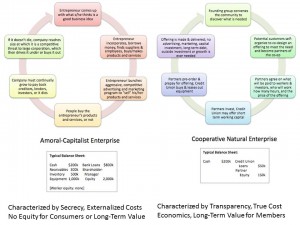
Imagine that the year is 1543 and you have just completed reading Copernicus’ newly published book, On the Revolution of the Heavenly Spheres, that has attempted to convince you that your daily experience of the sun moving around a stationary earth is an illusion. What do you think the chances are that you would have accepted the Copernican argument that violates your direct perceptions?
Thomas Gentry, Nonlinear Dynamicist, 1995
Is Integral Science related to Paul Ray’s work on Cultural Creatives?
Yes, ISI is working toward the same Integral Society identified by Paul Ray (see Cultural Creatives, 2003). We believe Integral Science provides a clearer understanding of why Integral Society is emerging and a more solid foundation for understanding what the Cultural Creatives must do to make it sustainable.
Is Integral Science related to Ken Wilber’s vision of Integralis?
Though there are some overlaps, Integral Science’s empirical foundation leads to some different conclusions from Wilber’s Integral Psychology and Integralis. Both views, for example, integrate spirituality and the evolution of consciousness, Integral Science integrates them into a seamless view of physical reality, using serious work from across disciplines, and taking great care to logically connect the dots from different fields.
Why is Integral Society emerging?
What does Integral Science say about what it will be like? Great changes are driven into being by the failure of the previous system, a breakdown whose root cause is cultural decay and whose main marker is a web of crises popping up in every sphere. Vowing to find a better way, a new cultural thrust then builds itself up around a new noble vision and defining metaphor that it believes will avoid the fiascoes of the old.
Hence, today’s great change, like those of the past, is being propelled by crises felt in every field. Think of education, health care, politics, energy, the economy, community, justice, and the environment. Yet, while these individual calamities grab attention, it is slowly becoming clear that the root problem is cultural decay. Late Modern culture has become a malady and late Modern America epitomizes the result.
Continue reading “Yoda: Integral Science Is the Force — Joining Intelligence with Integrity”





